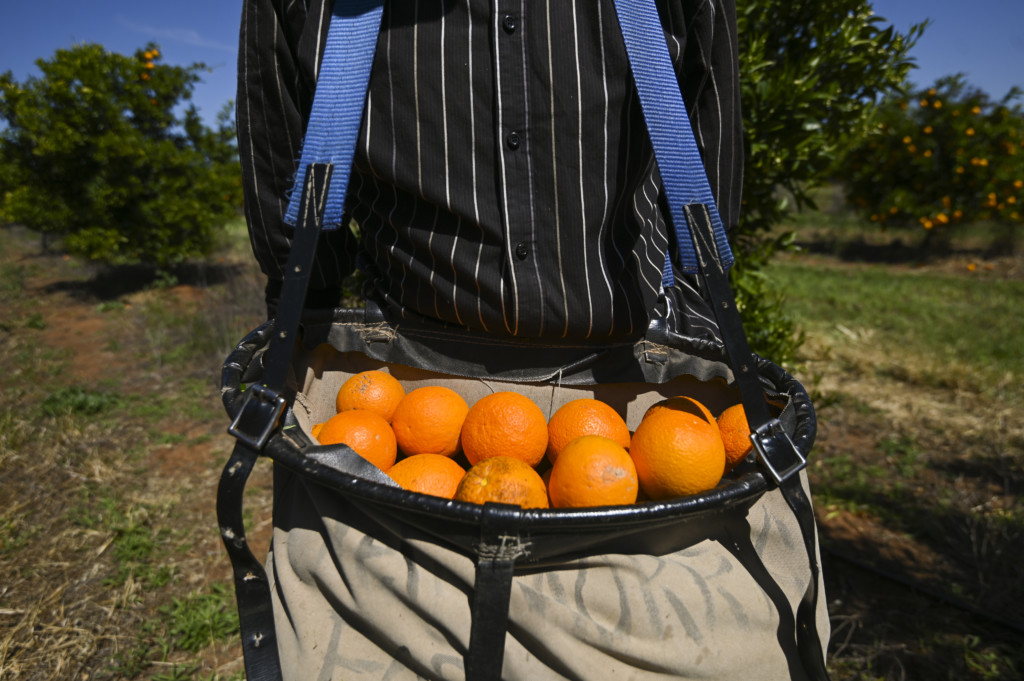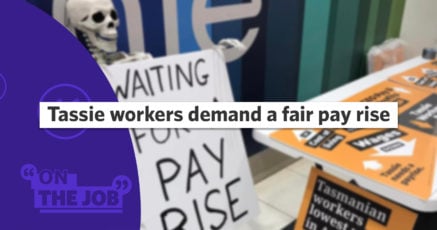Australian dinner plates are carrying an uncomfortable secret.
The abundance of high quality, relatively cheap fruit and vegetables that we are serving up at mealtimes comes at a much higher price to those whose job it is to harvest it.
Stories of wage exploitation (as little as $3 an hour in some cases), abuse and appalling, unsanitary conditions within the industry are commonplace.

A number of unions has come together as the Retail Supply Chain Alliance (RSCA) to campaign for a Royal Commission into the treatment of workers in the horticulture sector, a working environment that has a reputation for sustained abuse and exploitation of its workforce.
The RSCA, comprised of the Australian Workers’ Union (AWU), the Shop, Distributive and Allied Employees’ Association (SDA), and Transport Workers’ Union (TWU), believe that the culture of abuse has become so ingrained and normalised throughout the retail supply chain from farm to supermarket, that serious intervention is required.
AWU National Secretary Dan Walton sees the culture of exploitation as deeply damaging to the wellbeing of workers.
“Wage theft, exploitation, and worker abuse are now entrenched and normalised in Australian horticulture.
“There is no labour shortage in fruit picking. There are plenty of unemployed and underemployed Australians to do the work. The problem is too many farmers have become addicted to underpayment and exploitation as a normal part of doing business. This model isn’t inevitable in Australia, it’s just the one we’ve chosen in Australia,” he said.
It’s a far cry for Deputy Prime Minister Michael McCormack’s gormless, romanticised vision of the life of a fruit picker, where he claimed that people should “come to regional Australia, bring your mobile and have that Instagram moment, up a ladder, picking fruit, blue sky in the background, wonderful country breeze, wonderful friends around. You’ll find more friends. You might even find the love of your life out in regional Australia.”
McCormack’s fruit picking fantasy masks an ugly reality for many of those who have found themselves on the “harvest trail”, picking the produce that fills Australia’s supermarkets or is exported around the world.
Englishwoman Nicole Douglas wrote about here experience as a backpacker on the harvest trail and it’s a long way from the happy farm fantasy Mr McCormick peddles.
“Extremely low pay, sleazy farmers and getting hit and screamed at by supervisors all appeared to be part and parcel of working in agriculture, and something we heard about all too much during our three months on a farm. The actual work resulted in countless breakdowns, people tearfully leaving their jobs and some of the most old fashioned, backward treatment of workers I’ve ever known,” she said.
The RSCA were in Canberra last week making their case for a Royal Commission to parliamentarians from across the political spectrum. With them was one worker (who wished to remain anonymous), Worker X, who was willing to share their story of how the industry operates.
What emerged from their experience is a picture of an industry build on Dickensian work practices that would shock most Australians.
“The farms I’ve worked on in Coffs Harbour and elsewhere, you start at six in the morning and you pick fruit until 6 at night. In summer it’s until nine at night.
No breaks. No days off. Saturday and Sunday mean nothing.
“There are usually just a few toilets for many people. Everyone needs to go when they get up but the wait is too long for many. So workers end up urinating and defecating next to and sometimes on the crops. People are dirty and smelly because there are not enough showers. We live together in steel boxes about eight square metres.”
Michael Kaine, the National Secretary of the TWU, is adamant that Australian horticulture and its supply chain needs to break its reliance on a business model built on exploitation.
“Consumers and workers must be confident that the food on the shelf or delivered to their homes isn’t there through exploitation.
“In transport we see the power that major retailers have in creating the dynamics through their low-cost contracts which results in truck drivers being ripped off and safety disregarded.
“We see delivery drivers and riders denied rights to minimum pay and safety as they deliver the food and groceries picked by exploited workers.
“Some retailers have come on board to be part of the solution and then we have the likes of Aldi which refuses to accept the role it must play and even drags truckies through the courts to try to stop them speaking out about safety problems,” Mr Kaine said.
The major supermarket conglomerates not only have a responsibility to dismantle the culture of exploitation within the food supply chain, it’s in their best interest to do so, according to SDA National Secretary Gerard Dwyer.
“Proper wages for fruit and vegetable pickers and proper returns for farmers mean more money spent in their regional communities.
“Supermarkets and fast food outlets occupy an outsized role in the health of regional communities. The more money in the pockets of locals the more the regions will grow. Spend it and they will come.”
For Worker X and countless others who have experienced the worst that the food supply chain has to serve up, there is an insidious element of internalised bullying encouraged by unscrupulous employers, pitting workers against one another.
“The bosses encourage a culture of spying. If you dob in someone who is considering leaving or complaining you might get a little bonus. But honestly most people don’t consider leaving, because they have no idea what Australia is like on the outside,” they said.
Worker X also believes that the image sold to migrant workers of an idealised insta-friendly, sunny side up work culture is a cruel hoax, one that should shame most fair-minded Australians who enjoy the bounty this nasty business model produces.
“The people who arrange workers, they put ads in Chinese language groups on social media. They promise great working conditions and Australian pay. But that’s not what you get. There are so many people from China here who have been tricked into working on farms and now they’re basically trapped.
“What I have been through I would never think could happen in a civilised country like Australia.”













SHARE:
Serving up abuse and exploitation – Australian horticulture’s dark secret